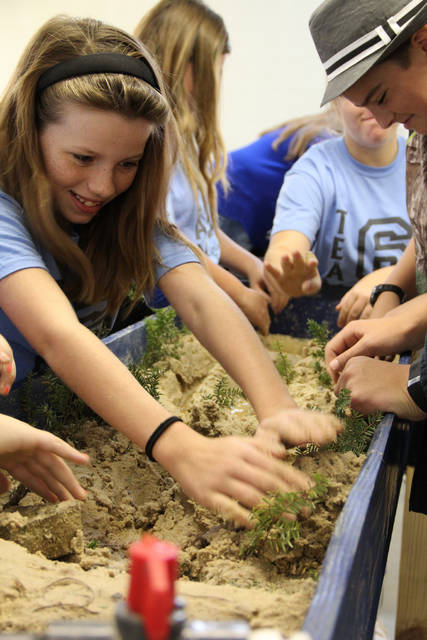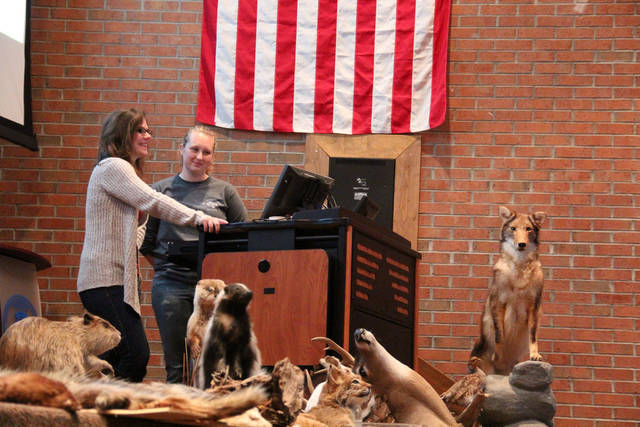LMU hosts school children for hands-on science program
Published 10:18 am Thursday, November 16, 2017
Lincoln Memorial University (LMU) hosted over 80 elementary and middle school students for a day of hands-on lessons linking local environmental history with wildlife, conservation and biology on Oct. 27.
The educational program focused on the unique interaction between humans and the environment in southern Appalachia. Students from Robbins and Fairview Elementary Schools in Scott County, Springdale Elementary School in Claiborne County, and LaFollette Middle School in Campbell County participated. Throughout the day, students visited exhibit stations on the Harrogate main campus. Participants learned about local plant life, wildlife and waterways as they made stops at the Abraham Lincoln Library and Museum (ALLM), the Cumberland Mountain Research Center (CMRC) and a wooded trail near Democrat Hollow.
LMU students built four stream tables to model natural streams and provide and immersive experience to explore stream dynamics. The displays will be used in future educational programs.
“The students may not remember all the terminology they heard today, but they will remember building models of rivers with their hands,” said Dr. Aggy Vanderpool, a professor of conservation biology.
LMU students Maggie Singleton, Darrell England, Aaron Redmond, Dedra Irwin, Amanda Schlegel, Joey Harris, Hope Johnson and Kiersten Dunaway led the demonstrations and presentations. In preparation of hosting the larger group, LMU students first shared the program with middle school students at the J. Frank White Academy.
“I have learned the importance of teaching young kids the history of our land and the role of wildlife,” said Irwin, a senior conservation biology student who shared a display of preserved animals. “I love to see the sparkle in their eyes when they learn something new and interesting. It gives me the drive to keep learning new things.”
England, a senior conservation biology student, demonstrated the stream tables he helped build. “I think it’s very important to show the students the ecological aspects of streams and how they impact their everyday lives,” he said.
Assistant professor of Conservation Biology, Dr. LaRoy Brandt, who worked on the grants to fund the event, and Dr. Thomas Mackie, former director of the ALLM, planned the program, assisting LMU students on creating the stream tables and preparing the students to work with the visiting students. In addition, Dr. Michael Toomey, professor of history, and Dr. Jessey Gilley, assistant professor of geography, provided weekend crash courses for participating LMU students on program topics.
“We hope the opportunity provided a rich experience that promoted deeper appreciation for the beauty and wonder of Southern Appalachia,” said Dr. Adam Rollins, dean of the School of Mathematics and Sciences.
The program was partially funded through grants from the National Center for Science and Civic Engagement (NCSCE) and Science Education for New Civic Engagement and Responsibility Informal Science Education Program (SENCER-ISE).








